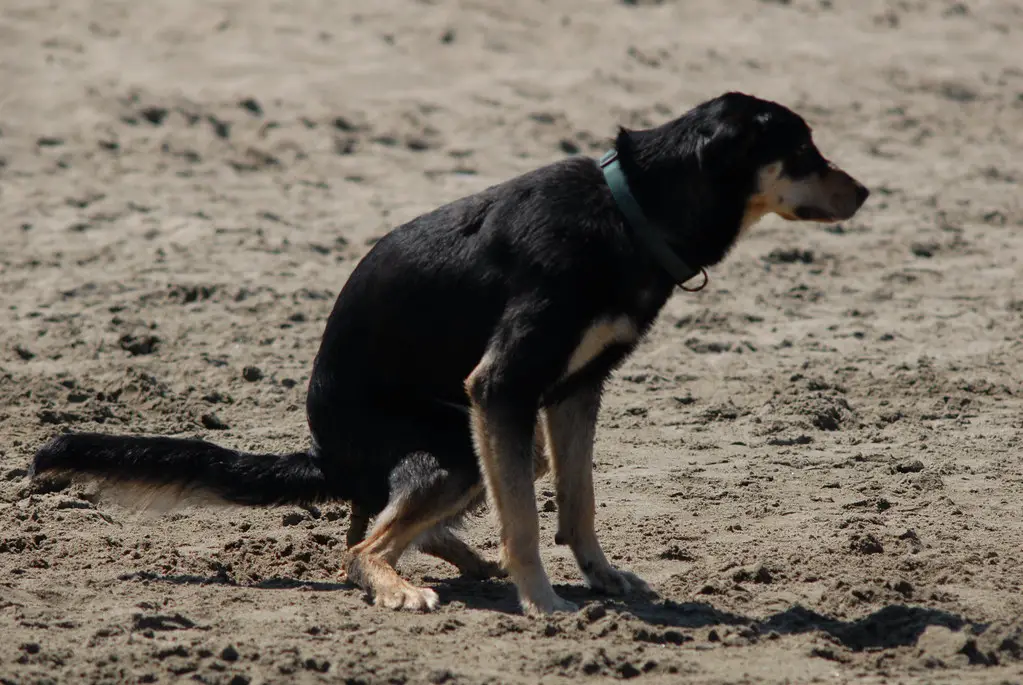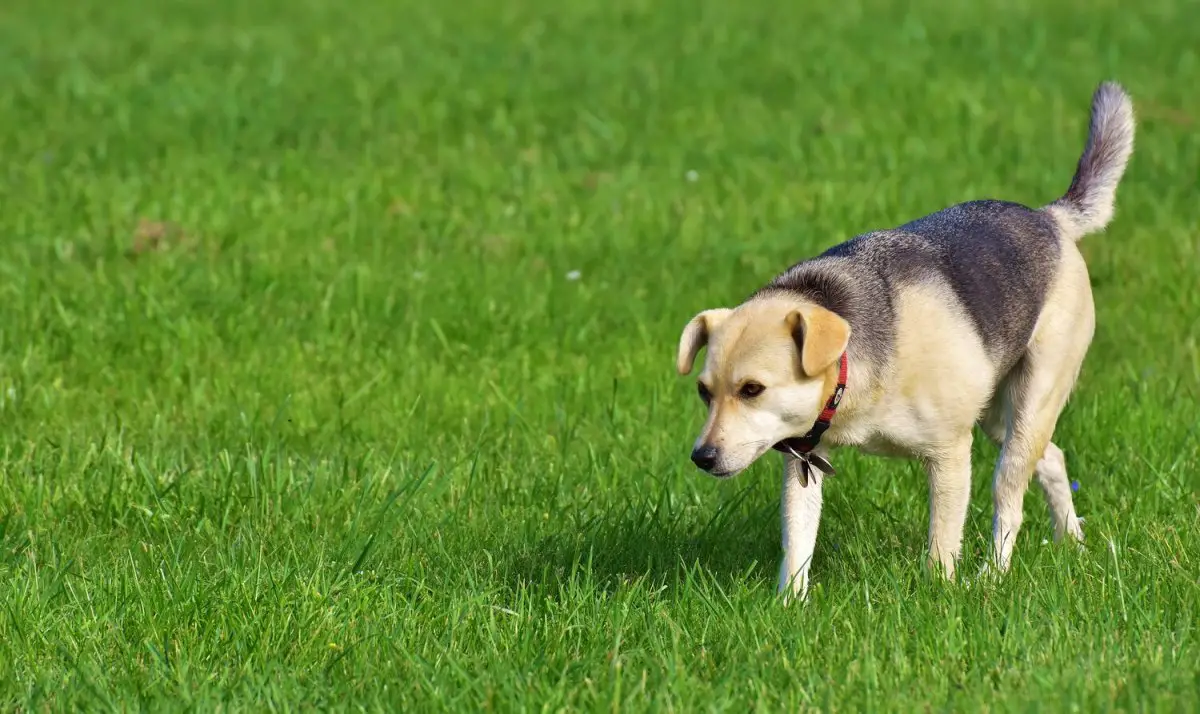Yes, dog poop is compostable. The poops, when composted, are high in nitrogen and phosphorus, some of the main nutrients needed for a healthy plant. Besides, composting pet waste is a great way to get rid of your pet poops and plastic bags environmentally friendly.
Table of Contents
Can You Compost Dog Poop?
Yes, you can compost dog poop. However, it is important to note that dog poops may contain parasites and bacteria such as salmonella and E. COLI, as well as roundworms and tapeworms.
Therefore, dog owners interested in composting dog poos should ensure that they take poops from healthy dogs only.
Check our video below for instructions on how to safely compost dog poop.
What Is Dog Poop Compost Good For?
Dog poop contains nutrients that are good for plants. Some of these include nitrogen, phosphorus, and potassium. These elements are usually referred to as NPK, and they’re essential because they help plants grow strong roots and produce fruits or vegetables.
Other benefits that are generated from composting dog waste include:
- The home compost will improve the fertility and physical condition of the soil.
- It also saves money on buying expensive fertilizers and landfill space.
- The nutrients in dog poops enable plants to grow bigger and faster, yielding better yearly harvests.
- Composting with dog poop has the added benefit of reducing the odor of dog waste when it’s left sitting around on the ground. When properly maintained, a dog poop compost heap will hardly smell.
- Many people also find that their houseplants flourish when they use dog poop compost as part of their regular watering regimen. This is because dog poop compost gives plants a steady supply of nutrients over time, encouraging healthier leaf growth.
Does Dog Feces Make Good Fertilizer?
Yes, dog feces makes a good fertilizer since these feces are rich in nitrogen, potassium, and phosphorus, three of the most important plant and soil nutrients.
Another great thing about using dog feces as fertilizer is that it contains beneficial microbes and bacteria that help decompose organic matter in soils.
On the downside, since dogs are meat-eaters, they may contain pathogens harmful to the compost pile. Therefore, dog poop compost should only be used on plants that are not food crops or fruit plants.
How Long Does It Take For Dog Poop To Decompose?
Under good condition dogs, poos take around 9 weeks to decompose. The decomposition process happens quickly when conditions are right.
In warm weather or soil with high moisture content, microorganisms like bacteria can break down animal waste quickly so that no foul smell or unsightly slime remains within hours or days of being deposited on the ground.

Composting Dog Poop: A Step-By-Step Guide
Step 1
Choose a sunny, dry place to place the compost bin.
Step 2
Take a separate compost bin and add a mixture of grass clipping, sawdust, and the dog poop. It should be added first to get deep into the compost pile.
You should add a shovel of sawdust, grass clipping, or other brown materials for every dog waste. Poop contains a lot of organic material—roughly 65% water and 35% dry matter.
Step 3
Add some water into the mixture until it is moist. The moisture is needed for decomposition. If the mixture becomes dry, the decomposition process will not be complete.
Step 4
Continue adding other green materials for a good balance.
The carbon to green materials should be in a ratio of 4:1.
Step 5
Once the bin is full, close it. As the decomposition process begins, the microbes will start to work. They will release heat and increase the temperature in the compost.
Step 6
Insert a compost thermometer regularly to check the temperature of the compost. The temperature should be around 140 degrees for an effective decomposition.
It may begin to decline after 2 weeks.
Step 5
Begin to turn the entire compost pile. Turning the compost pile allows for proper decomposition. It ensures that all the components reach the right temperature required to kill the pathogens and effectively decompose.
Also, turning it keeps oxygen moving through your pile. If you notice an odor coming from the compost heap, it means there’s too much moisture or not enough air getting to the pile, so adjust accordingly.
Step 6.
After several months the compost will stop heating up; this shows that decomposition is complete.
Next, cure the finished compost for some months to stabilize its pH and ensure that the decomposition process is complete.
6 Expert Tips On Composting Dog Poops Effectively
To effectively compost your dog’s poops, stick to these guidelines:
1. Use Separate Compost for Pet Wastes
Only use the compost for ornamental plants such as flower beds, not plants you consume. Dog poops may have pathogens that are harmful to humans if consumed.
2. Ensure You Compost Your Dog Wastes Properly
The poor composting process can risk your health and even others around you.
It is good to plan by ensuring that you have the right dog waste composter and organic materials or organic wastes.
3. Avoid Dog Poops from Unhealthy or Unvaccinated Dogs
You should not use dog doos from dogs that show signs of illness.
4. Use a High-Temperature Composting Method
When you use a high-temperature composting method, the compost will have the needed temperature to kill pathogens and allow for full decomposition.
The most important rule is that dog poop must be “hot” (at least 140 degrees) to kill dangerous bacteria that may harm humans or other living things.
5. Mix Dog Poop with Carbon-Rich Materials
If you don’t, it may not decompose as quickly. Dog poop also needs to reach high temperatures for an extended period—the kind of heat and duration that typically can’t be reached without mixing it with carbon-rich material first—for it to break down effectively into usable compost.
6. Nitrogen Vs. Carbon-rich Materials
Most dog poop composts are made primarily of nitrogen-rich materials like leaves and grass clippings, which aren’t ideal for plant growth unless they’re balanced with plenty of carbon-based materials.
Adding straw or wood chips to your dog poop compost can help solve this issue—and if you have access to wood chips from a local sawmill, they may even work better than straw because they’re likely to be more naturally aged and therefore more nutrient-rich.

